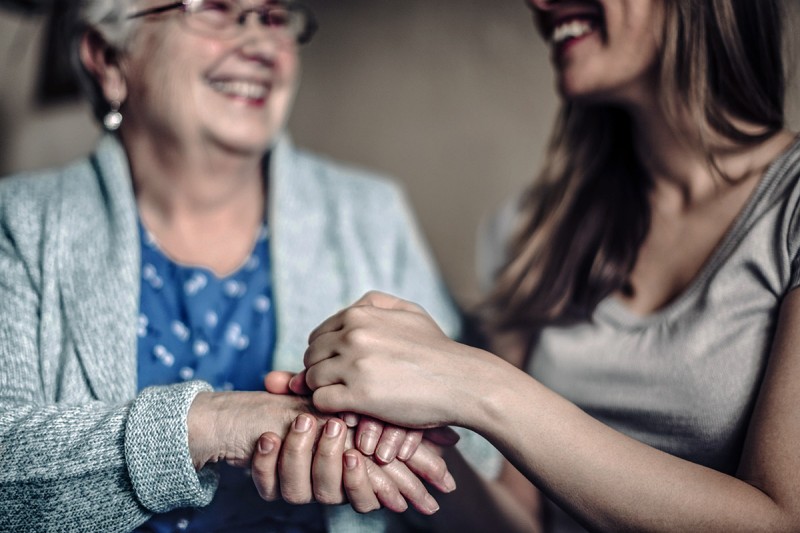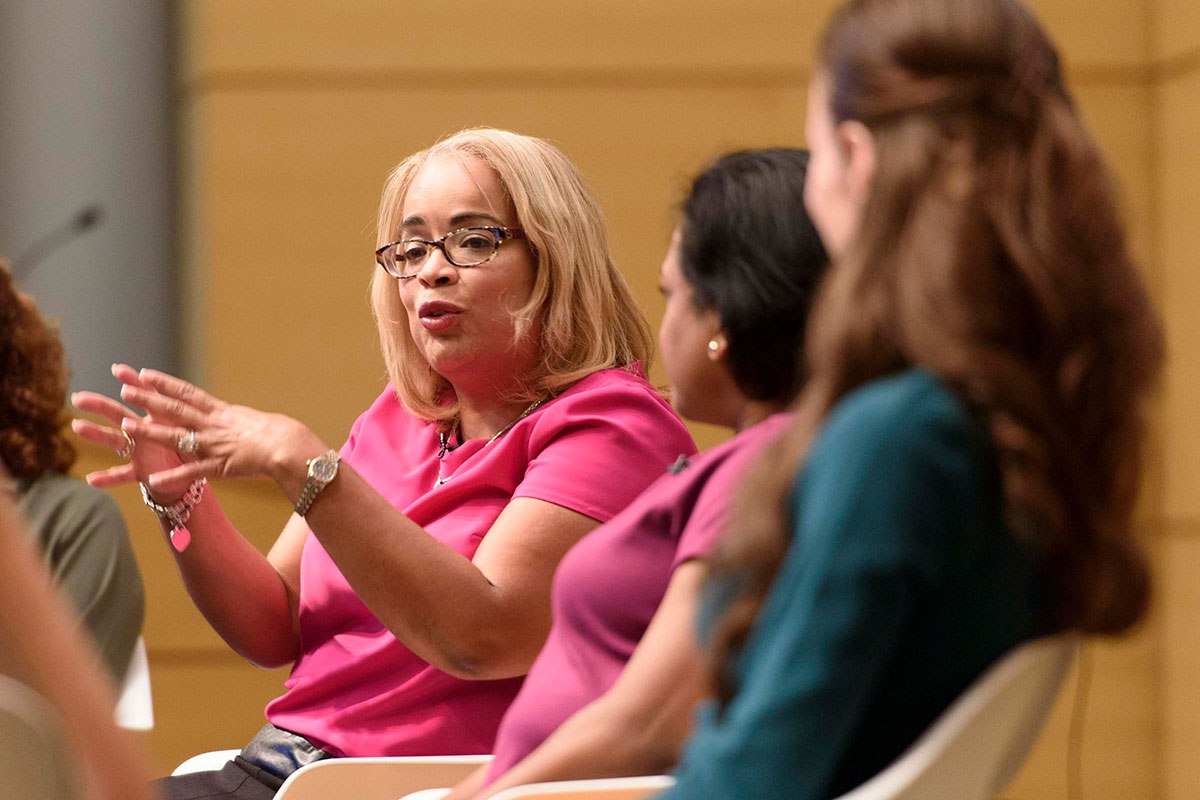
Caring for a loved one with cancer is a meaningful yet challenging role. We asked experienced caregivers to share some of the advice that helped them through the process. Here is what we learned:
1. Stay Organized
Keep a log: Write down any symptoms or problems in a notebook. It organizes your questions for each visit and makes it productive. It is a big responsibility to be a caregiver. You are emotionally attached to your patient. You’re not trained as a nurse or doctor, yet here you are fighting for a life, often far away from MSK. But together you realize you are part of a team that coordinates care. You can do things you didn’t think were possible.
— Linda Adragna, on Facebook
2. Don’t Forget the Basics
Sleep becomes a very valuable commodity! If you’re not resting, you won’t be able to deal with everything. Eat well. I know the tendency is to sit down with a half gallon of ice cream and down the whole thing, but it’s not going to work. You have to eat well to keep up your energy and keep up your strength.
— Jim Cooper, in MSK’s “Advice for Caregivers” video
3. Remember to Breathe
Remember to take a few deep breaths every day. Just that small act would slow down my racing heart and clear my mind. I wish had known to do this right from the beginning of my son’s journey.
— Ceil Fraticelli, on Facebook
4. Consider Joining a Support Group

With support groups, you realize you’re not alone. You make connections and friends.
— Carla Smith, at MSK’s CancerSmart panel discussion “Support for the Caregiver: Practical Advice and Tips for Coping”
5. Go One Day at a Time
Take it one day at a time, so you don’t lose yourself under the stress of the unknown. Focus on the positives every day, and never pity yourself or your loved one who’s fighting. Positivity rubs off on people, but so does pity.
— @TL43TL, on Twitter
6. Practice Self-Care
Taking care of yourself is very important. You can’t give proper care if you’re not taking care of yourself. You want to make sure that you don’t burn out and that you are your best self so that you can give the best care possible.
— Michelle Pierrot, in MSK’s “Advice for Caregivers” video
7. Call On Your Network
I soon realized I needed help, and there’s no way you can do this alone. I had a very good network of friends and I basically delegated: I asked them to do certain tasks for me.
— Joan Kilcommons, in MSK’s “Advice for Caregivers” video
8. Know Where to Turn
I try to surround myself with people who are positive and who support me in the right way.
— Stacey Lawrence, at MSK’s CancerSmart panel discussion “Support for the Caregiver: Practical Advice and Tips for Coping”
9. Enlist a Professional
Reach out to a psychologist. MSK has so many resources and there is so much help out there.
— Monica Magda Gheorghe, on Facebook





